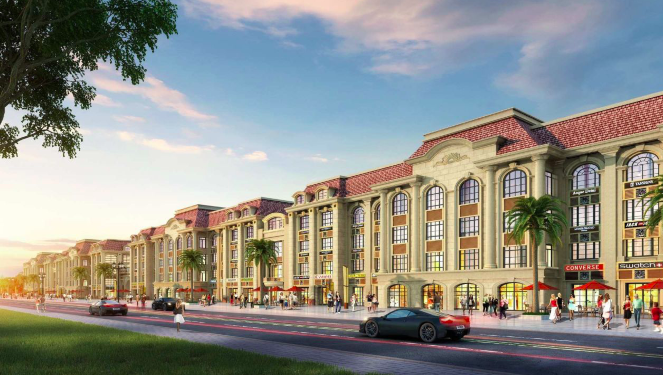
Yatay City
There is a widespread perception that it is easier to turn a well-developed city into a smart city.
The reality is, however, different. It is, in fact, much easier to turn a not-so-developed city into a blockchain-enabled smart city, and that makes more economic sense, too.
“The fastest and most affordable way to turn a city into a smart city is to do it from scratch,” Douglas Gan tells e27. “The reason is that it is much quicker to implement new technologies and integrate with existing technologies, as compared to changing legacy infrastructure and convincing partners.”
“Try asking an existing well-developed city to implement significant changes to its legacy infrastructure, and try convincing the entities that move the needle in these cities. It will be super tough,” he adds.
Gan is the CEO of Singapore-based BCB Blockchain, which provides infrastructure for smart cities, globally.
Launched in March 2018, BCB Blockchain protocol is the foundation for building smart city solutions and has APIs ready for use for the development of applications, such as asset ledgering, e-wallets and payment systems.
Also Read: Limestone Network aims to transform Phnom Penh into a blockchain-enabled smart city
“Our journey began in 2018, when Lee Changjin (COO) and I started BCB to solve growing technological problems in developing countries. It started off with e-wallets and payment systems and has since grown to become the number one blockchain protocol for developing smart cities solutions,” he says.
“BCB is dedicated to the establishment of a secure and trustworthy infrastructure for smart cities. In order to achieve the goal of a more livable, workable, trust-free and sustainable city of the future, we are committed to the development of the ecosystem, providing a one-stop shop for turning smart city concepts into smart city solutions and establishing an open platform to share BCB Blockchain technology with everyone across the globe,” Gan adds.
Myanmar’s Yatai City is BCB’s first smart city project, which was launched by the Myanmar Yatai International Group.
“It is a US15B investment,” Gan adds. “BCB is the exclusive provider of blockchain infrastructure for Yatai City. BCB supports the blockchain infrastructure for the ledger of assets, digital wallets, secure payments, general insurance, healthcare records and more.”
The step-by-step process
Firstly, BCB is working on building secure transaction data infrastructure using its blockchain technology. Then, it will provide BCB digital wallets to all users and businesses in the city, resolving the lack of bank and finance infrastructure.

BCB Blockchain CEO Douglas Gan (C) with COO Lee Changjin (L) and CTO Vanessa Koh
Thirdly, BCB will create a global ecosystem of solutions, developers, and partners for the smart city.
“We have partner universities and tech accelerators in the region to resolve the problems that may arise in future. We also intend to accelerate and partner with companies to develop blockchain with AI, VR, IoT. Besides, we will create more creative concepts to resolve cross/multi-industry issues,” he explains.
BCB plans to use Yatai city as a testbed to implement bleeding-edge solutions to hopefully jump from 3G to 5G or even 6G for all kinds of industries using blockchain as the data layer for security.
“Developing a city has multiple phases. We are committed to going the 10, 20, 50 years with Yatai City to develop a first world smart city of the future,” he elaborates. “At the moment, our BCB Blockchain technology is being used in Yatai City’s every step of development, from their first building to their first water refinery, power plant, etc.”
Also Read: Smarter Cities will help, but not solve, global pollution crisis
A blockchain-powered smart city will make everything super-efficient. One example would be the exchanging of assets. It will be a simple act of transferring a smart contract that has already been recognised by the relevant bodies, enabling the asset exchange to take place within the fraction of a second.
“We have signed with one other city, but we can’t disclose the name yet as we prefer to execute first then share later publicly. But to give you an idea, this smart city is located in Cambodia,” he notes. “Our mission is to support the economies of 1000 smart cities of the future.”
BCB is owned and operated by GBCI Ventures, a US$100-million smart city-focused fund. It invests in smart city-focused IoT solutions, fintech and blockchain. The fund has made 19 deals so far.
The post This Singapore startup is set to turn Myanmar’s Yatay City to a blockchain-powered smart city appeared first on e27.